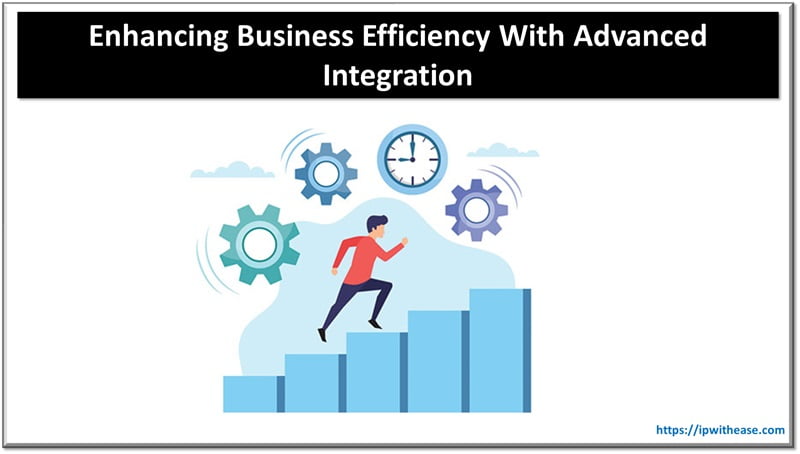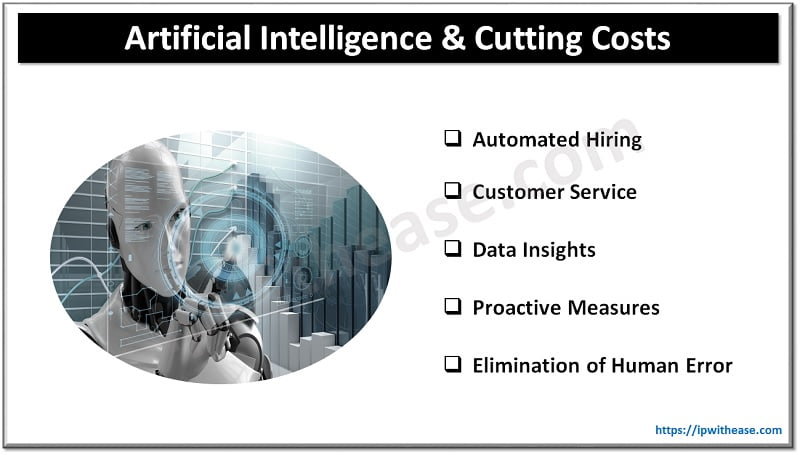In the modern business landscape, efficiency is not just a goal; it’s a necessity for survival and growth. With the evolution of technology, companies now have access to many tools and strategies designed to streamline operations and maximize productivity. One such strategy is leveraging advanced integration capabilities, which stands out for its ability to transform how businesses operate and compete in the digital age.

Strategies to Enhance Business Efficiency
Understanding The Role Of Integration In Modern Business
Integration in the business context refers to connecting various IT systems, software, and applications within an organization to enable them to work together seamlessly. This interconnectedness allows for smoother communication, faster information flow, and more efficient operations. In today’s fast-paced environment, quickly and effectively integrating different systems can be the difference between staying ahead of the curve and falling behind.
The Impact Of Advanced Integration On Workflow Optimization
Advanced integration capabilities can profoundly influence workflow optimization. By automating and streamlining processes, these integrations reduce the need for manual intervention, minimize errors, and free up valuable time for employees to focus on more strategic tasks. For instance, when integrated effectively, a business process automation tool can automate repetitive tasks, ensuring that workflows are more efficient and less prone to human error.
Enhancing Data Accessibility And Decision-Making
Data is the lifeblood of any modern organization. Advanced integration capabilities ensure that data from various sources is consolidated and readily accessible. This accessibility is more than a convenience; it’s critical for informed decision-making. By providing a holistic view of business operations, integrated data systems enable managers and leaders to make decisions based on the full spectrum of available information. This approach eliminates the guesswork and assumptions often accompanying decisions made in data-scarce environments.
Furthermore, the integration of data systems facilitates real-time data analysis. This immediacy means decision-makers can respond swiftly to emerging trends, market shifts, and internal performance metrics. The ability to analyze and act on data in real-time transforms businesses into agile entities capable of adapting to the ever-changing business landscape. For example, a marketing team can adjust campaigns on the fly based on real-time customer feedback and engagement metrics, ensuring optimal resource allocation and maximizing ROI.
Streamlining Customer Experience Through Integration
The importance of customer experience in today’s market cannot be overstated. Advanced integration plays a pivotal role in streamlining this experience.
- By integrating various customer touchpoints with back-end systems, businesses can ensure that customer interactions are smooth, personalized, and consistent across all channels.
- This level of integration allows for a more comprehensive understanding of the customer journey, enabling businesses to tailor their services and responses to individual customer needs and preferences.
- A unified customer view, achieved through integration, also aids in anticipating customer needs and addressing potential issues before they escalate. For instance, integrating customer service platforms with product databases allows customer service representatives to provide quick, informed responses to inquiries, significantly enhancing customer satisfaction and loyalty.
In a digital age where customer loyalty is hard-won and easily lost, this seamless and proactive approach to customer service can be a game-changer.
Cost Reduction And Resource Optimization
Advanced integration capabilities are key in an era where doing more with less has become a business mantra.
- These integrations enable businesses to optimize their resource allocation by automating tasks and streamlining processes. This efficiency translates into significant cost savings as manual processes are reduced, and operational bottlenecks are eliminated.
- Automation, a key component of advanced integration, ensures that routine tasks are executed precisely and consistently, freeing human resources to focus on more complex, value-added activities.
- Integration can also lead to better resource management. For instance, integrating inventory management systems with sales data can help maintain optimal inventory levels, reducing the cost of overstocking or stockouts.
By leveraging the power of integrated systems, businesses can save money and enhance their overall productivity and competitiveness.
Navigating Challenges In Integration
Despite the clear benefits, navigating the complexities of advanced integration is challenging. Businesses must embark on their integration journey with a clear plan and strategy to avoid common pitfalls such as data silos, where isolated data sets remain inaccessible to other parts of the business. Other challenges include ensuring compatibility between systems and safeguarding data security and privacy.
- To successfully navigate these challenges, businesses must conduct thorough due diligence when selecting integration platforms and tools.
- This process involves understanding the business’s specific needs, the integration solutions’ technical capabilities, and the potential risks involved.
- Additionally, businesses must invest in ongoing training and support to ensure that their teams are equipped to manage and maintain these integrated systems effectively.
Preparing For The Future With Scalable Integrations
As businesses grow and evolve, so too do their integration needs. Advanced integration capabilities must be scalable to accommodate this growth.
- Scalability in integration ensures that as a business expands, whether in terms of size, geographic reach, or service offerings, its systems can adapt and grow accordingly.
- This scalability is crucial for maintaining the efficiency and effectiveness of business processes over time.
- Scalable integrations also mean that businesses can start with what they need and expand their integration capabilities as their needs evolve.
- This approach prevents overinvestment in complex systems that may not be necessary at earlier stages.
- By choosing flexible and scalable integration solutions, businesses can ensure that they are not only meeting their current needs but are also well-prepared for future growth and changes in the market.
This forward-thinking approach is essential for businesses that aim to stay relevant and competitive in a rapidly evolving digital landscape.
Conclusion
Advanced integration capabilities are a technological advancement and a strategic necessity for businesses aiming to enhance efficiency, optimize workflows, and stay competitive. Businesses can unlock new productivity levels, customer satisfaction, and growth by understanding and effectively implementing these integrations. The journey to achieving seamless integration may be complex. Still, the benefits are undoubtedly transformative for those willing to embrace this change.
Continue Reading:
Best Ways To Use Software To Improve Your Business Processes
Real-Time ETL vs Batch ETL: Types of Data Integration
ABOUT THE AUTHOR
IPwithease is aimed at sharing knowledge across varied domains like Network, Security, Virtualization, Software, Wireless, etc.



